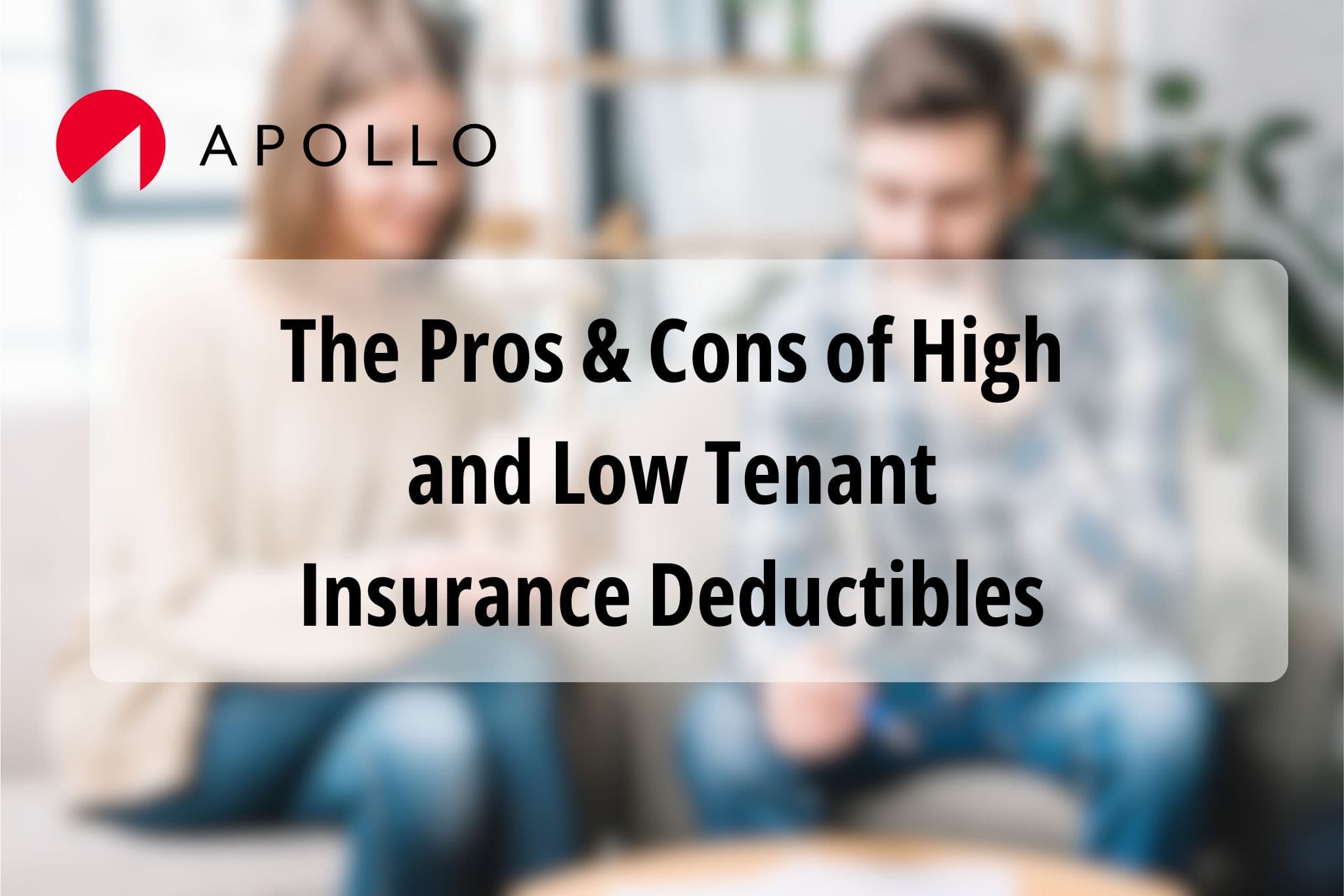Tenant Insurance: What It Is and Why It’s Important

Many people are familiar with home insurance, but not as many are aware of renter’s insurance (also known as tenant insurance). This type of insurance is designed to protect those who are renting a home, apartment, or condo, and in many cases, it’s a necessary part of your lease.
It is important to note that your landlord’s insurance typically only covers the building, leaving your personal belongings unprotected. Additionally, if you are found liable for damages to the building, your landlord’s insurance company may hold you responsible for the costs. Having the proper tenant insurance can help in both of these situations, as well as cover additional living expenses that may arise due to covered losses, among other things.
In this article, we will explore the benefits of tenant insurance and provide tips on what to look for when choosing a policy.
What Tenant Insurance Covers
Insure your belongings from covered losses such as theft, water damage, and vandalism
Tenant insurance can offer protection for valuable items, such as laptops and jewelry, against theft or damage caused by covered losses, depending on the policy type. In addition, insurance can provide peace of mind in case of damage or loss of high-value items like watch collections or DSLR cameras. Commonly, policies cover break-ins, sudden and accidental water damage, and fires, and provide compensation for the repair or replacement of your property within the limits of your policy, after paying your deductible.
Some renters may believe that they do not own enough items to justify the cost of insurance. However, it is advisable to take inventory of your belongings and estimate the cost of replacing them all. You may be surprised at the total value. As part of your policy, you can also choose how much personal property coverage you require. If you have a limited number of valuable items, you can opt for a lower amount of coverage while still enjoying the other benefits of tenant insurance.
Protect yourself from personal liability
In the event that you accidentally start a fire by leaving the stove on or cause damage to the floors and walls due to water running, the landlord or their insurance company may take legal action against you. Without insurance protection, you could be left with a huge bill to pay. This is where the personal liability protection portion of renters’ insurance can be beneficial. Typically, tenant insurance protects you from anyone suing you for damages up to a specific amount, which is determined by the policy you have purchased.
Moreover, liability protection can also prevent you from incurring out-of-pocket expenses if someone gets injured while at your residence. For example, a slip or fall could result in a personal injury lawsuit to claim medical expenses or lost wages against you. Tenant insurance can provide coverage for these damages, so you do not have to pay them yourself.
Cover additional living expenses in the event of a covered loss
There are different scenarios that could render your residence unlivable, such as a fire that damages your building or a car crashing into your home. While landlord insurance can protect your landlord with rental income replacement and repair costs, you may need to find temporary accommodation until you can secure a new place. This could potentially mean incurring high expenses for a hotel or Airbnb.
However, tenant insurance can provide coverage for additional living expenses resulting from unfortunate events covered under your policy. This means that if you are forced to leave your home, your insurance can cover the cost of a hotel and reasonable additional food expenses.
What to Look Out for in a Tenant Insurance Policy
Although tenant insurance covers many situations, there are a few things to look out for before you commit to a policy:
Coverage Limits: The maximum amount covered due to lost or damaged belongings, personal liability limit and additional expenses limits.
Deductible: The amount you would have to pay if you make a claim.
Scope of Policy: Tenant insurance doesn’t cover everything. For example, your policy won’t cover preventable damage, such as water damage over a long period of time due to a slow leak.
The price of your tenant insurance policy can be determined by a few factors, such as location, limit of the coverages, and deductibles mentioned above. Generally, a higher coverage limit and a lower deductible result in a higher monthly cost for your insurance policy.
Although tenant insurance may seem like an additional expense that you might want to avoid when you already have rent, groceries, and other bills to pay, having insurance protects you from unforeseen circumstances. The best-case scenario is that you will never have to use your policy. However, if your belongings are ever damaged or stolen, or you face a lawsuit or additional living expenses due to a covered event, tenant insurance can save you from a significant financial burden.
Originally published August 12, 2022, updated October 10, 2023
Back to APOLLO MagazineTenant Insurance Starting at $13/month
The only tenant insurance provider with a Best Price Guarantee. Already have a policy or quote? We’ll beat the price. Guaranteed. Terms apply.
4.7 rating
Tenant Insurance Starting at $13/month
The only tenant insurance provider with a Best Price Guarantee. Already have a policy or quote? We’ll beat the price. Guaranteed. Terms apply.
4.7 rating
Relevant articles
Getting insured is as easy as 1 - 2 - 3

Tell us (very little) about yourself
Just tell us your address, your name, email and phone number. And that's it. We'll give you a price in less than a minute.

Pay online easily and securely
You can choose to pay monthly or save money by paying for the entire year in one easy payment.

Get your documents in your inbox - instantly
As soon as you complete your purchase, you'll find your proof of insurance and policy documents waiting for you in your inbox.
Get covered today - it couldn’t be easier
We’ve provided more than 1,000,000 quotes to Canadians just like you. Give it a try!


